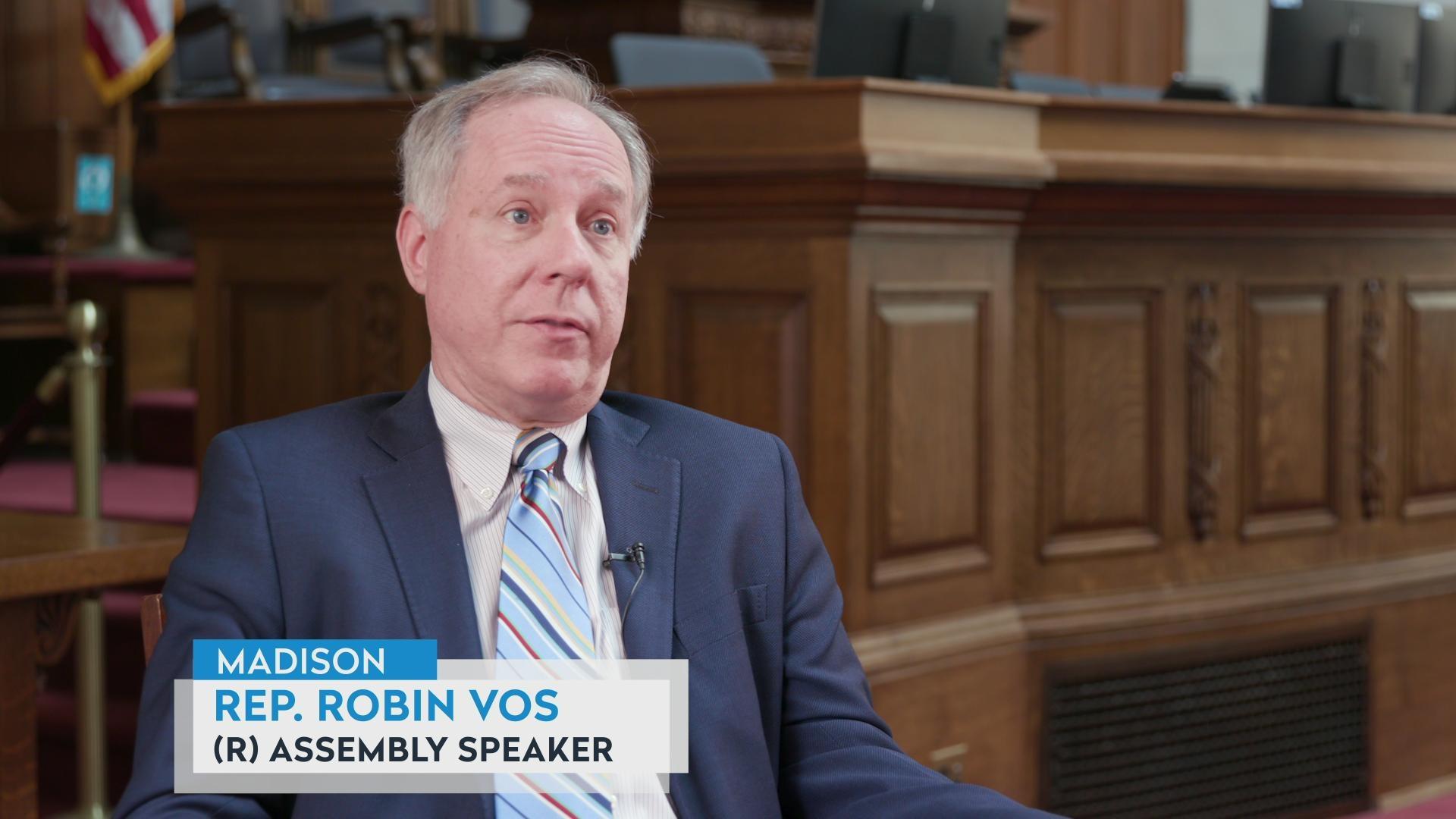Frederica Freyberg:
Menasha schools already have a policy on this. In April, the Board of Education there unanimously approved a policy allowing transgender and gender non-conforming students to use restrooms of the gender they identify with. The District’s Superintendent Chris Vanderheyden talks to us about that decision. Thanks very much for being here.
Chris Vanderheyden:
You’re welcome. It’s my pleasure.
Frederica Freyberg:
First I wanted to ask you what your response is or reaction is to the bill that is before the legislature now?
Chris Vanderheyden:
I spoke yesterday in Madison at the legislative hearing against the bill that's currently being presented. I think it puts our school districts in a difficult position between what the OCR opinion and recommendations are around these type of policies and the bill. The bill would put us either where we're violating Wisconsin law or we're violating the OCR opinion on this which I realize is not law however their guidance does impact our schools from budgetary standpoint and as well as a policy standpoint.
Frederica Freyberg:
How would it put you in violation of those things?
Chris Vanderheyden:
Well, OCR position is very clear. Transgender students would use the facilities they identify with. And our policy is closely aligned to that although not perfectly aligned to that. The bill that's currently in place would make us basically have to undo and replace our policy entirely.
Frederica Freyberg:
Tell me, exactly what your policy is in the district?
Chris Vanderheyden:
Sure. Our policy- it was mainly driven by a discrimination claim regarding bathrooms. So our policy very clearly puts into place for transgender students that first of all they identify strongly with the belief this is not something that just occurred to them last week. There’s a strong belief aspect to it. Parental involvement as well as some type of counseling or physicians involvement and our purpose for that is to make sure that a child who is dealing with this in their life has proper supports in place. If they meet those conditions then we do allow them to use the restroom that they identify with. In terms of locker rooms and changing rooms our policy still keeps that on a case by case situation because we feel there’s a line between the two topics. So we don’t just put the bathroom and locker room issues into the same pile.
Frederica Freyberg:
How is it working in your district?
Chris Vanderheyden:
As of the implementation of the policy last April we have not had any issues reported by any students or staff. I just checked with my principals the other day.
Frederica Freyberg:
Superintendent how many students in your district do you suppose make use of this policy?
Chris Vanderheyden:
Well there’s no way for us to really know which students are transgender unless they have come forward and made a specific request. Although we work with several students who have requests for accommodations on several different levels. But at this point in time I’m not aware of any of those students who are transgender at our high school. It's worked out between the staff and folks there and as I eluded to earlier we have not had issues since the implementation of the policy.
Frederica Freyberg:
So I wanted to ask have there been complaints from students or parents?
Chris Vanderheyden:
We have not had any recent complaints, any issues. Again there were concerns raised as the policies were being developed back in the spring but we had nothing else that has come forward since then.
Frederica Freyberg:
And the concerns that were raised, did this policy address those?
Chris Vanderheyden:
I think the policy addressed some of the concerns but it’s not able to address some of the — there’s some fears involved with understanding what it means to be transgender and just what exactly a transgender person does or acts or looks like or how they behave. And some of those fears we certainly can't address within the policy. However we do feel we took advantage in the policy of the opportunity to put some controls in such as the ones I mentioned earlier regarding the student having the belief and the parent support et cetera.
Frederica Freyberg:
Has there on the flip side, been praise for this policy being put in place?
Chris Vanderheyden:
We have received you know in talking with colleagues they’ve been glad we stepped forward and put some type of policy in place to help guide them in their decisions. Again I won't say it’s the perfect policy but at least there's a step in what we feel is the right direction. We certainly did have folks when we were putting the policy up for review we had probably about 50/50 in audience of people who spoke at our board meetings who were in favor of it and were appreciative of the forward thinking by the Menasha joint district school board.
Frederica Freyberg:
Speaking of that persuasion-the forward thinking persuasion-do you feel as though Menasha was kind of on the vanguard of this?
Chris Vanderheyden:
I don’t know that we’re — we have a lot of publicity about it certainly however we did find as we were doing our research when the topic came up we did find five or six other school districts in the state of Wisconsin that had policies already that in regard to transgender students. And we also found there were cases around the country although none that were at that point in time in the legal system here in Wisconsin or in this area.
Frederica Freyberg:
And we leave at the there. Superintendent thanks so much for joining us.
Chris Vanderheyden:
You’re welcome Thank you.
Search Episodes
News Stories from PBS Wisconsin

Donate to sign up. Activate and sign in to Passport. It's that easy to help PBS Wisconsin serve your community through media that educates, inspires, and entertains.
Make your membership gift today
Only for new users: Activate Passport using your code or email address
Already a member?
Look up my account
Need some help? Go to FAQ or visit PBS Passport Help
Need help accessing PBS Wisconsin anywhere?

Online Access | Platform & Device Access | Cable or Satellite Access | Over-The-Air Access
Visit Access Guide
Need help accessing PBS Wisconsin anywhere?

Visit Our
Live TV Access Guide
Online AccessPlatform & Device Access
Cable or Satellite Access
Over-The-Air Access
Visit Access Guide
 Passport
Passport


















Follow Us